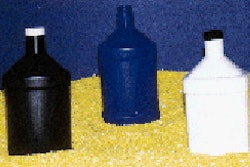Speaking at a GMA technical and regulatory conference, attorney Eugene Lambert, whose firm Covington & Burling represents many food industry companies, said the agency is drawing a fine line between health claims and structure/function claims. The former indicates how a product prevents disease, while the latter indicates how the product affects the structure or functioning of the body in maintaining good health and nutrition. In his view, there will be little or no flexibility in structure/function claims. To avoid claims being interpreted as disease-related, manufacturers may opt for descriptions less understandable to consumers, says Lambert, thus undermining consumer awareness of foods beneficial to maintaining good health. In a related issue, the Nutritional Health Alliance (NHA) petitioned the U.S. Supreme Court to review FDA's current policy that bans health claims not approved by FDA on dietary supplements to determine if it is a violation of First Amendment rights. NHA argues FDA should have the same standards for supplement claims as those that apply to advertising. NHA lost the previous round when the Court of Appeals for the Second Circuit upheld FDA policy.
Food claims at risk, too?
A leading expert on food labeling says FDA's position on dietary supplement labeling is likely to mean food manufacturers also will face closer scrutiny of their claims.
Oct 31, 1998
Machinery Basics
List: Digitalization Companies From PACK EXPO
Looking for CPG-focused digital transformation solutions? Download our editor-curated list from PACK EXPO featuring top companies offering warehouse management, ERP, digital twin, and MES software with supply chain visibility and analytics capabilities—all tailored specifically for CPG operations.
Download Now
Get a jump on your 2026 packaging & processing goals at PACK EXPO East.
Be the first to find what’s next in packaging & processing at PACK EXPO East. See new solutions from 500 exhibitors, uncover creative ideas for 40+ verticals and gain inspiration from free sessions on industry trends—all in one trip to Philadelphia.
REGISTER NOW & SAVE
Downloads






















